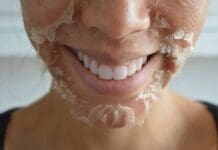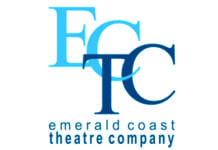Treatment Options for Thinning Hair: A Comprehensive Guide by a Board-Certified Dermatologist
By Dr. Jessica Clark
Thinning hair is a common concern for many individuals, affecting both men and women as they age or experience certain medical conditions. Fortunately, there are a variety of treatment options available to help combat hair thinning. These treatments range from topical and oral prescriptions to advanced technologies like the Cynosure UltraLaseMD offered at Beach Dermatology Skin Wellness Clinic. This article will delve into the most effective approaches, highlighting their benefits, potential side effects, and how they can help restore thicker, healthier hair.
The first step is diagnosis. Hair loss is not a diagnosis. There are several forms of hair loss, some more serious than others, and some are related to underlying autoimmune disease. Board Certified Dermatologists are physicians who specialize in skin, hair, and nails and not all treatments are appropriate for some disorders. Please get an accurate diagnosis first, which may include blood work depending on your age, sex, and form of hair loss.
- Topical Treatments
Minoxidil: The Gold Standard
Minoxidil (brand name Rogaine) is one of the most well-known and widely used topical treatments for hair thinning and hair loss. It is available over the counter in 2% and 5% concentrations. This medication can also be prescribed orally by your physician. Oral works faster than topical, but there are a few potential side effects to discuss with your doctor.
How It Works: Minoxidil is thought to stimulate hair follicles by increasing blood flow to the scalp, thereby encouraging hair growth. Minoxidil prolongs the anagen (growth) phase of the hair cycle.
Effectiveness: Clinical studies have shown that Minoxidil can slow down hair loss and promote regrowth, particularly in the crown area of the scalp. However, it works best in the early stages of hair thinning and may not be effective for individuals with advanced baldness.
Side Effects: Some users may experience scalp irritation, itching, or redness. In rare cases, unwanted facial hair growth can occur, especially if the product spreads to areas of the face. Pet owners need to be cautious, as it can be dangerous to animals.
Other Topical Options
Ketoconazole Shampoo: Often used for its anti-inflammatory properties, ketoconazole is a topical that may help address scalp inflammation, a potential contributor to hair thinning. It is available in prescription and over-the-counter strengths.
Corticosteroids: Topical steroids are only appropriate for autoimmune forms of hair loss and are sometimes prescribed for people with alopecia areata, an autoimmune condition that causes hair loss in small, round patches or lichen planopilaris that can cause severe permanent loss if not caught early. Topical steroids can reduce inflammation and encourage hair regrowth in these cases.
Compounded prescriptions: Today, several compounding pharmacies have expanded our options and combine prescriptions like minoxidil, finasteride, and spironolactone topically plus or minus other nutrients that have been proven to support hair growth.
Exosomes: The new kid on the block. The science here is pretty exciting!! Topical serums that contain exosomes, which are cellular messengers to tell your hair growth to “Turn on!!” As of summer of 2025, this will be the new wave of products that produce stellar results. They are pricey, but the results are undeniable. There are a few reputable brands, the most popular right now is Plated, and they are going to start to be employed by themselves but even better in combination with oral and laser therapies. Early studies show 100% of participants are happy with results when adding exosomes to their hair loss regimens. At Beach Dermatology Skin Wellness Clinic, we are so excited about this science that we just placed our first order, as this may replace some of our older treatment options soon!
- Oral Medications
Finasteride: A Proven Option for Patients
Finasteride (brand name Propecia) is an oral medication that has been shown to be effective in treating male and female pattern baldness.
How It Works: Finasteride works by inhibiting the enzyme 5-alpha reductase, which converts testosterone to dihydrotestosterone (DHT), a hormone linked to hair follicle shrinkage in genetically predisposed individuals. By reducing DHT levels, finasteride can help slow hair loss and promote regrowth.
Effectiveness: Research has shown that finasteride can significantly improve hair density and slow down the progression of hair thinning in men with androgenetic alopecia (male-pattern baldness). However, it’s most effective when started early in the process of hair loss.
Side Effects: Some men may experience sexual side effects, such as reduced libido or erectile dysfunction. These side effects are rare and typically resolve after discontinuation of the medication.
Dutasteride: A Stronger Alternative to Finasteride
Dutasteride (brand name Avodart) is a medication similar to finasteride but works by inhibiting both types of 5-alpha reductase. This makes it more potent in reducing DHT levels.
Effectiveness: Dutasteride may offer a greater benefit for men with severe androgenetic alopecia who do not respond well to finasteride. This medication is first line for lichen planopilaris and frontal fibrosing alopecia, both much more serious forms of hair loss.
Side Effects: Similar to finasteride, dutasteride may cause sexual side effects, though these are rare and reversible.
Spironolactone: An Option for Women
Spironolactone (brand name Aldactone) is an oral medication that can be effective in treating female-pattern hair loss (androgenetic alopecia) in women. It works by blocking androgen receptors, reducing the effect of male hormones (androgens) on hair follicles.
Effectiveness: Spironolactone is particularly useful for women who experience hair thinning due to hormonal imbalances, such as those related to polycystic ovary syndrome (PCOS). It may take several months to see noticeable results.
Side Effects: Spironolactone can cause hormonal side effects, including menstrual irregularities and breast tenderness. It’s not recommended for pregnant women due to the risk of birth defects.
Oral vitamins like Nutrafol and Viviscal: The jury is still out. These products seem to help minimally over time but are very expensive. Most patients do not see results from “hair vitamins” but small studies show some evidence that they can help when used in addition to other treatments. Most dermatologists feel that the prescriptions above are much more effective and significantly less costly over time. Insurance will often cover the prescription options whereas vitamins are out of pocket.
- The Cynosure UltraLaserMD: A Revolutionary Approach
For individuals seeking non-invasive treatments, Cynosure UltraLaserMD offers a promising option in the fight against thinning hair. This advanced technology utilizes advanced laser technology as a clinically proven method to stimulate hair growth.
How It Works
The Cynosure UltraLaserMD uses light at specific wavelengths to penetrate the scalp and stimulate the hair follicles. This process enhances cellular metabolism and blood flow to the hair follicles, promoting hair regrowth.
Effectiveness
Clinical studies suggest that laser treatment can increase hair density and the thickness of individual hair strands. It’s most effective for individuals with early to moderate stages of hair thinning. Results typically begin to appear after several weeks of treatment, with continued improvement over time.
Advantages: One of the key benefits of the Cynosure UltraLaserMD is its non-invasive nature. There is no downtime, making it an ideal option for those who prefer to avoid side effects or invasive procedures. It is also painless and the appointment takes less than 30 minutes.
Side Effects: The risks associated with laser treatment are minimal. Some individuals may experience mild scalp irritation or a slight tingling sensation during treatment, but these side effects usually resolve quickly.
Who Should Consider It?
Cynosure UltraLaserMD is particularly effective for individuals with androgenetic alopecia or telogen effluvium (temporary hair shedding) and can be used as a standalone treatment or in conjunction with other therapies such as minoxidil or finasteride. It’s also an excellent option for patients who prefer a non-chemical solution.
- Combining Treatments for Optimal Results
In most cases, combining multiple treatments offers the best results. For instance, using minoxidil for topical stimulation, finasteride for internal DHT reduction, and Cynosure UltraLaserMD for enhanced follicle stimulation can work synergistically to slow hair loss and promote regrowth. Most forms of hair loss need long-term treatment. We used to have no options. Now we have many options, but most forms of hair loss need maintenance treatment for the rest of your life to maintain results. There are some patients that are very severe, or have had hair loss for many years and they may need to consider a hair transplant to get meaningful results. We now have a full hair transplant clinic across the hall at Coastal Plastic Surgery that is amazing for patients with severe loss or scarring, but even those patients need to continue maintenance treatments to protect their investment and continue to keep fragile hair follicles healthy. The most important thing is to tailor the treatment plan to the individual’s unique needs and consult with a board-certified dermatologist to determine the most appropriate regimen.
Thinning hair can be a distressing concern, but today’s array of treatments offers hope for those looking to restore their hair’s volume and thickness. Topical treatments like exosome serums and minoxidil, oral medications like finasteride and spironolactone, and innovative technologies like the Cynosure UltraLaserMD laser can all contribute to improving hair health. It’s important to consult a dermatologist to determine the most suitable treatment based on the cause and severity of hair thinning.
Contact Beach Dermatology at (850) 238-8511or visit their website at www.beachskinclinic.com to learn which of these options might be best for you.
About the Author:
Dr. Jessica Clark is a board-certified dermatologist specializing in hair loss treatments, including both medical and advanced technological interventions. With over 10 years of experience, Dr. Clark is dedicated to providing personalized care to patients seeking effective solutions for thinning hair.























































